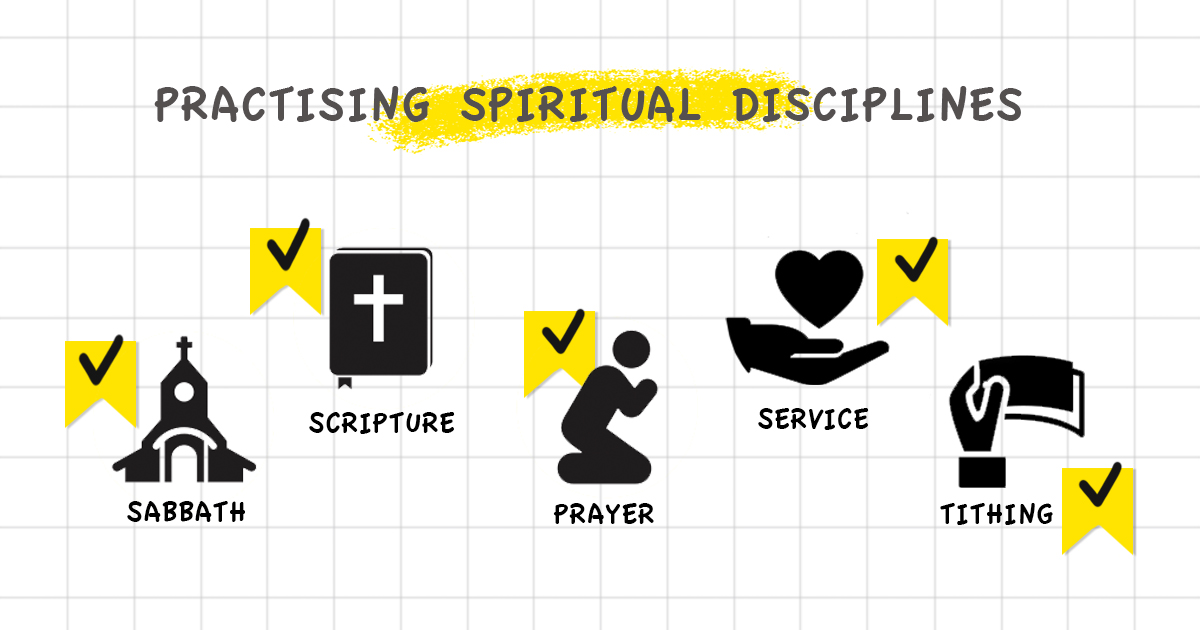In a previous article, we began exploring aspects of an OTHERS-focused faith, recognizing that our lives should have an outward focus. This month, Jacob Pearo examines the importance of tenacity (T), and how healthy spiritual habits and life in community can help us persist in discipleship.
Does this sound familiar? You show up to church, engage in small talk with the person sitting next to you, sing along to the worship songs and listen to the weekly message. Just your typical Sunday morning. Except this week, the message seems to hit you a little harder. Maybe it addressed a specific sin issue in your life or maybe it opened your eyes to a blind spot in your discipleship to Jesus. Either way, you leave church that morning feeling convicted, encouraged and motivated to change that area of your life to better reflect Christ.
Then Monday morning rolls around, and you are killing it. So much so that you start to wonder if you’ve mastered this whole “discipleship” thing. If the message was about patience, then you’re suddenly able to display it in unexpected ways—not even the slow line at the grocery store checkout can get in the way of patient bliss. Or if it was about generosity, then your bank account has lost its grip on your heart and you’re giving like there’s no tomorrow. Maybe the message was about self-control, and you feel like you’ve gained complete control over a previous addiction. Whatever it is, you’re crushing it.
But then Tuesday arrives … and Wednesday … and Thursday. And as each day passes, it becomes harder to keep it up. By Friday, you feel like you’re the same person you were the week before. Sound familiar? What happened?
We live in a world that highly values information and knowledge, and it can often trick us into thinking that listening to sermons or faith-based podcasts, reading Jesus-y one-liners on Instagram or even opening our Bibles from time to time is all we need to become more like him. As if the more we know about Jesus, the more we’ll become like him.
But as the experience outlined above reveals, knowledge alone does not transform. We don’t slip back into old un-Christlike tendencies because we’ve forgotten what the preacher shared; we slip back into old tendencies because information alone only does so much. Holistic discipleship is more than knowing the Bible, knowing what Jesus teaches or consuming good, healthy Christian content. Don’t hear me wrong—it isn’t less than this, but it is so much more. Holistic discipleship is about creating space for the Spirit of God to transform us. That includes, but is not limited to, our minds.
God hasn’t created us as exclusively “thinking things,” but as whole people—mind and body. What we think impacts how we live and who we’ll ultimately become, but so does our body and the things we do with it. For disciples of Jesus, this means that the development of healthy spiritual habits is vital to our spiritual formation. Spending time in silence, keeping the Sabbath, learning to fast, cultivating generosity or gratitude, or practising the presence of God—these spiritual disciplines don’t provide any knowledge we didn’t have before. They create space for the Spirit of God to transform us through our daily, weekly and monthly habits. Why? Because the things we do, do something to us.
God has also created us as relational beings. We pay attention to who our kids spend time with, because those people will play a vital role in shaping who they become. As disciples of Jesus, if we want to become like Christ, then surrounding ourselves with people who will help that happen is vital. There is no other way to become like Jesus than through our active involvement in a healthy spiritual community. Community provides the encouragement and accountability needed to grow in our likeness of Christ and exposes the ways in which we aren’t like Jesus, allowing us to invite the Spirit to transform those areas of our lives. Neither of those two things are possible in a solo pursuit of Jesus.
If you’re discouraged or frustrated with your spiritual journey, despite the countless sermons you’ve heard and books you’ve read, it’s possible that you are treating discipleship as an intellectual endeavour instead of a holistic one. Do your daily, weekly and monthly habits reflect someone who is pursuing Christ, or something else? What formative Christian community are you investing in beyond church on Sunday morning? Do you have a group of people encouraging and helping you to become more like Jesus?
Let’s pursue Christlikeness with tenacity, as we commit our minds to him, model our habits after his and engage in relationships that help us grow in him.
Jacob Pearo is the spiritual formation and discipleship leader at Northridge Community Church in Aurora, Ont.










Thank you for this article